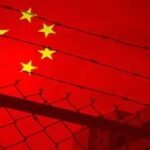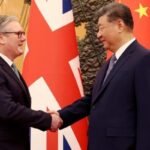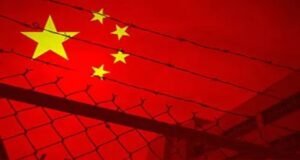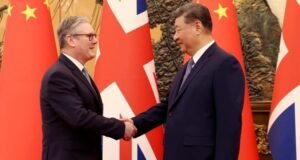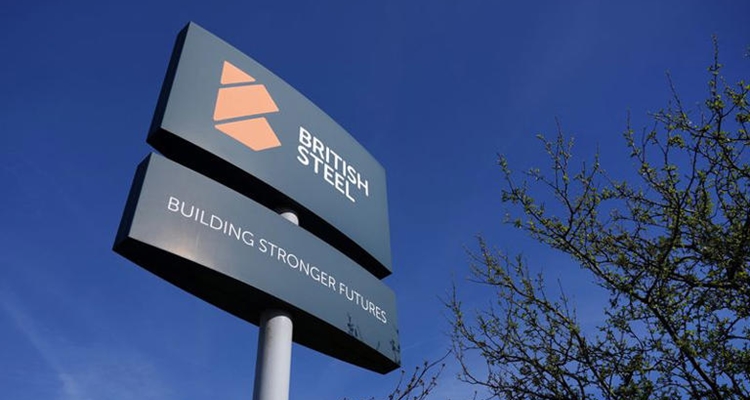
Why are “car making, life sciences and agricultural products…less sensitive areas for Chinese investment” in the United Kingdom than the steel industry (“China no longer welcome in UK steel sector, minister says,” Reuters, April 14, 2025)?
UK business minister Jonathan Reynolds is a member of the habitually China-appeasing Labour government that has been in power since 2024. But this Labour government doesn’t want to let China undermine the ability of the British economy “to produce so-called virgin steel from iron ore, coke and other inputs.”
The complaint is that China’s Jingye Group, which owns or did own British Steel, declined a big UK government check to prevent “irrevocable damage to blast furnaces.”
China is no longer welcome in Britain’s steel sector after the government had to pass emergency legislation on Saturday to ensure control of Chinese-owned British Steel, business minister Jonathan Reynolds said on Sunday.
Reynolds said the refusal of China’s Jingye Group to accept a roughly 500 million pound ($654 million) government aid package last week to stop irrevocable damage to blast furnaces left the government with no alternative to intervening directly….
Against a backdrop of global overcapacity in much of the steel industry and challenges from U.S. tariffs, Jingye wanted to import steel from China for further processing in Britain, Reynolds said in an interview with Sky News.
But the closure of blast furnaces at the British Steel plant in Scunthorpe—which need to be constantly fuelled and are losing 700,000 pounds a day—would have left Britain as the only major economy unable to produce so-called virgin steel from iron ore, coke and other inputs.
Previous British governments had been “naive” to allow Chinese companies to be involved in the steel sector, Reynolds said….
“I wouldn’t personally bring a Chinese company into our steel sector. I think steel is a very sensitive area,” he said….
Reynolds said he viewed other sectors such as car making, life sciences and agricultural products as less sensitive areas for Chinese investment.
This is a mess. An earlier Reuters story tells us that “nationalisation [of British Steel is] on the table.”
The New York Times says that the UK says that nationalization is not on the table:
The government insists that it is not nationalizing British Steel, but it is asserting control over the board and management and, it seems, taking responsibility for the running costs.
The government says it wants to find a partner to invest in a greener steel-making process, but critics say these moves are tantamount to nationalization.
“This is a botched nationalization plan,” warned Andrew Griffith, the business spokesman for the opposition Conservative Party.
The steel industry has long been in decline in Britain. If British Steel had been in private British hands and unable to keep its blast furnaces going in the country’s last big steel mill without a big welfare check, the furnaces could have been allowed to simply expire. If, later on, making steel in the UK had become economically viable again, the blast furnaces could then have been resurrected; somehow they were built in the first place. But Reynolds is right about the fact that when British Steel went under in 2020, the UK government should not have allowed Jingye to buy it.
Now the British ministers have used justifiable concern about the plans and motives of a company with “direct links to the Chinese Communist Party” to grab control of British Steel. And do what with it?
It’s a Labour government now, which means that the British are being ruled by a government that is 63% communist itself. The last time the UK government determined the fate of British Steel, the ministers turned it over to a Chinese outfit with “direct links to the Chinese Communist Party.” And that was a Conservative government, only 48% communist.
Also see:
The Independent: “Race to save British Steel factory after Chinese firm’s ‘sabotage’ ”

